How to Make Window Boxes Look Good in Winter — For a Colorful and Blooming Curb Appeal
The nights are long, and the days are short. With limited light, it's time to brighten things up with these window box schemes
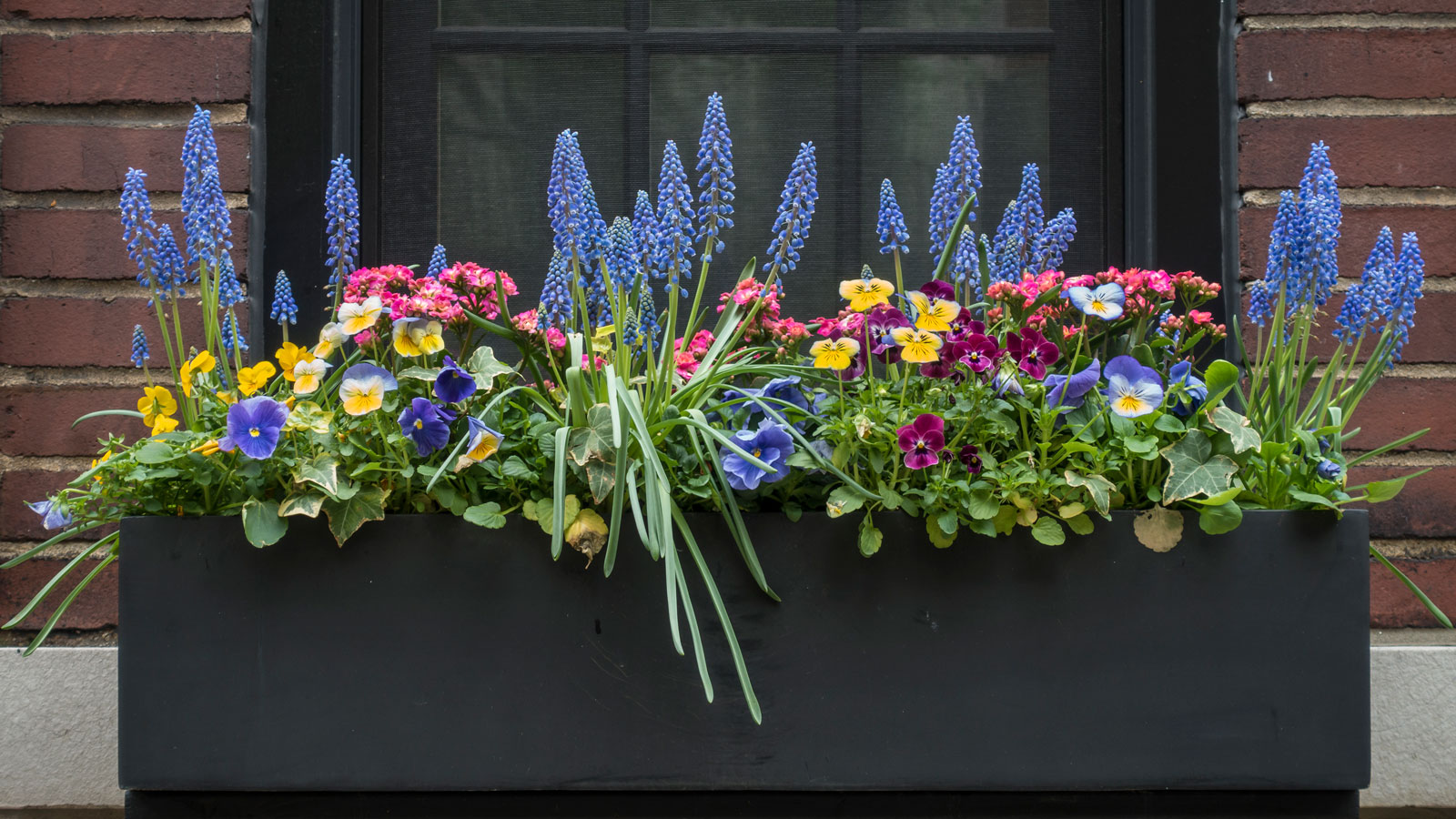
Faiza Saqib
As the seasons change and darkness begins to take over, you'll want to take this opportunity to fill the outside of your home with winter blooms that will add color and curb appeal to your space. Creating a window box design will allow you to learn more about what plant combinations work well together and how to arrange them for your garden design needs.
Understanding container gardening is the key to a luscious winter window box. Knowing how to carefully curate your outdoor space will add a sense of character to your home. It's best to regularly refresh your window boxes and change the way they look and feel, season by season. For example, bulbs are a great way to fill any gaps and will keep the display showing for months.
To keep your window box in check and looking good this winter, you'll want to add some pizzazz and curb appeal to your front or backyard. Here are some fun ideas for making your window box look good this winter.
How to Make Window Boxes Look Good in Winter
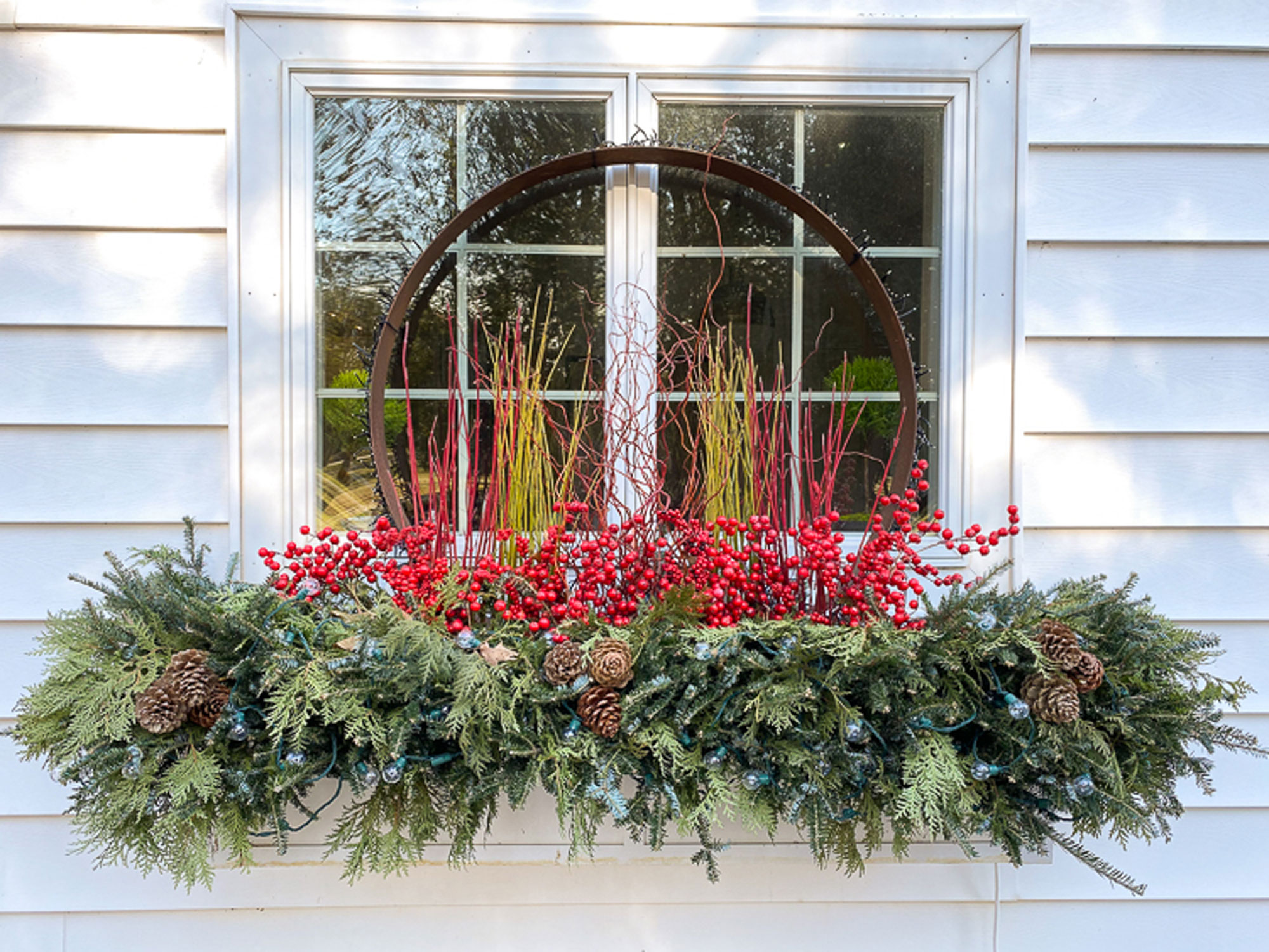
This window box by Erin Schanen of The Impatient Gardener uses a good amount of arborvitae, colored dogwood stems, and berries to create an alternative design assembled using foraged materials
Adding some of the best flowers for window boxes will give your home added curb appeal and may attract the attention of passersby.
"I love creating winter containers," says Erin Schanen, founder of The Impatient Gardener, based in Southeastern Wisconsin. "They can be simple or over the top, and free or quite spendy. All of them bring color at a time of year when the world seems to be in a dull brown haze. Add lights and you have instant holiday cheer."
We also love a stylish window box that celebrates the winter season. Choose a simple shot of color with flowers or berries and some spectacular foliage as an instant way to boost your curb appeal.
1. Co-ordinate your window box
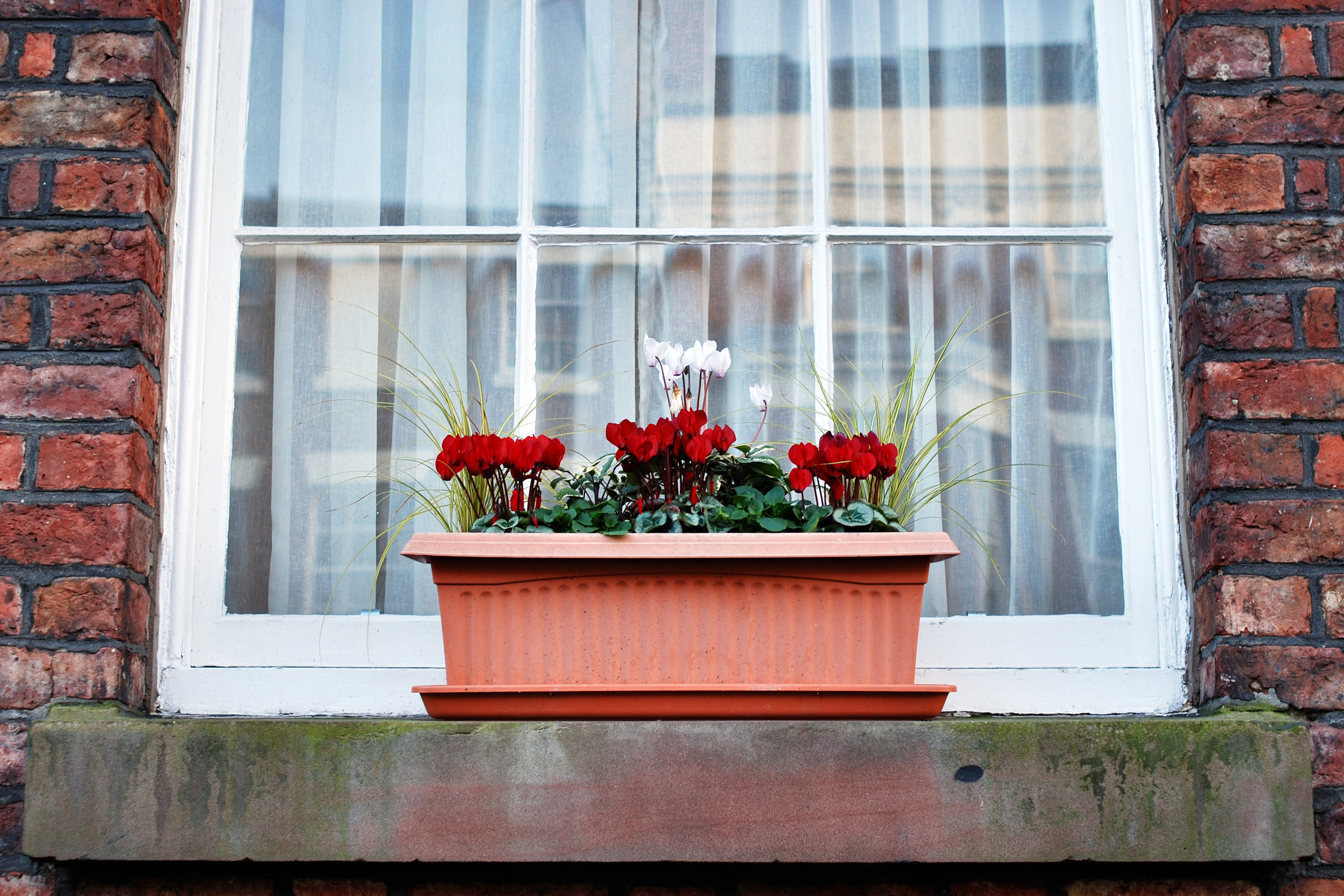
Matching your window box planting scheme to your exterior paintwork is an easy win if you want to make a big impact on your street. Sometimes sticking to one color theme just makes sense if you're looking for instant curb appeal.
Looking for low-maintenance plants for window boxes? "Plant cold-hardy pansies en masse using one color," suggests interior designer Elizabeth Drake of Drake Interiors. "The fewer the types of flowers in the window box, the larger the blooms for curb appeal. For budget-friendly plants, try Walmart Garden Center and pick the best-looking plant in the place to plant en masse."
Winter pansies come in a vast variety of colors, including neutral whites and creams, so it shouldn't be difficult if you want to match up a particular aspect of your exterior look, such as the paintwork. You can keep planting them right through the winter months too and they will continue to bloom into spring. Despite their delicate good looks, they are bred to withstand colder temperatures.
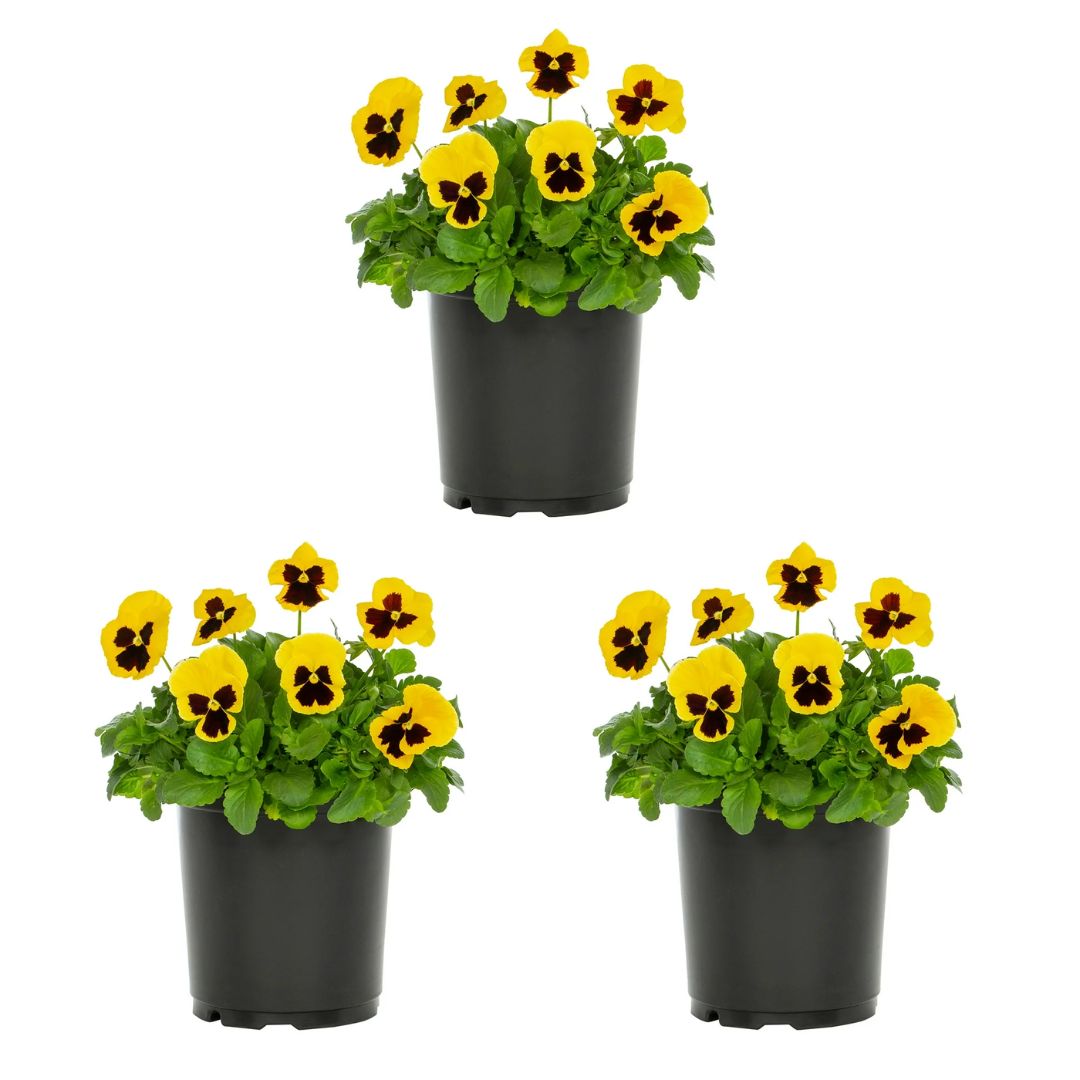
Price: $34.97
Quantity: 3 Pack
This bright live yellow pansy plant grower pot is the perfect touch of color and elegance for window boxes. Ensure you pace these blooms in full sun for a few hours for healthy growth.
2. Add elegant definition with evergreen topiary
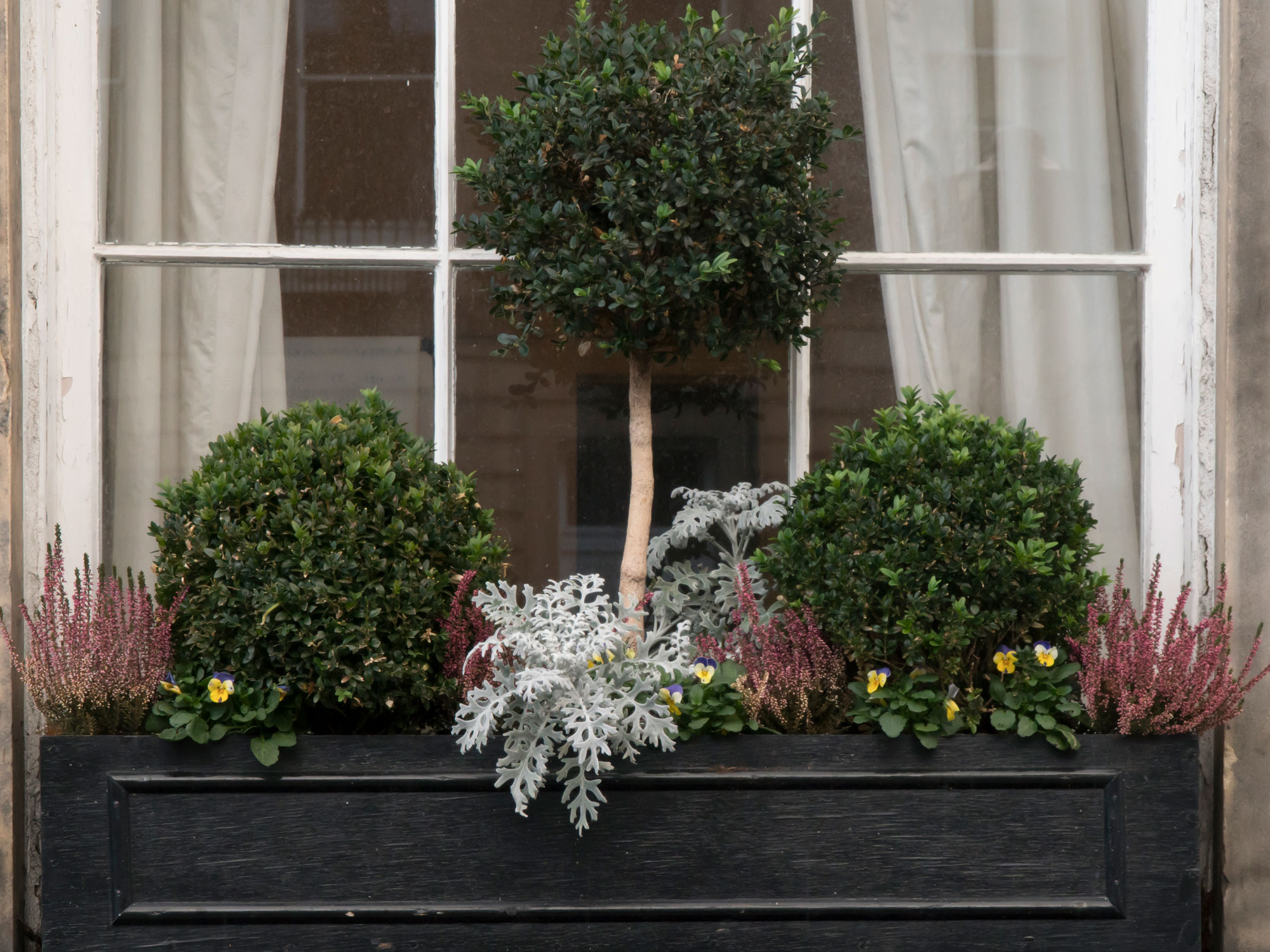
Evergreen plants hold their own for months and will anchor your window box design in winter and beyond. They form a permanent display that allows the planting around them to be switched in and out seasonally.
There are plenty of small evergreen shrubs that look wonderful in winter window boxes and will add plenty of visual interest and appeal over the coldest months.
A combination of clipped structural evergreens with a supporting cast of seasonal winter planting like heathers and pansies lets you create a low-maintenance scheme that offers long-lasting color and structure. When the evergreens outgrow their space, they can simply be transferred to the garden.
If you want an elegant, minimalist look, Baby Gem Dwarf Boxwood from Amazon, is a classic choice for evergreen structure. Alternatively, try dwarf varieties of hebe or euonymus to get the look.
3. Brighten your exterior by tucking in pockets of color
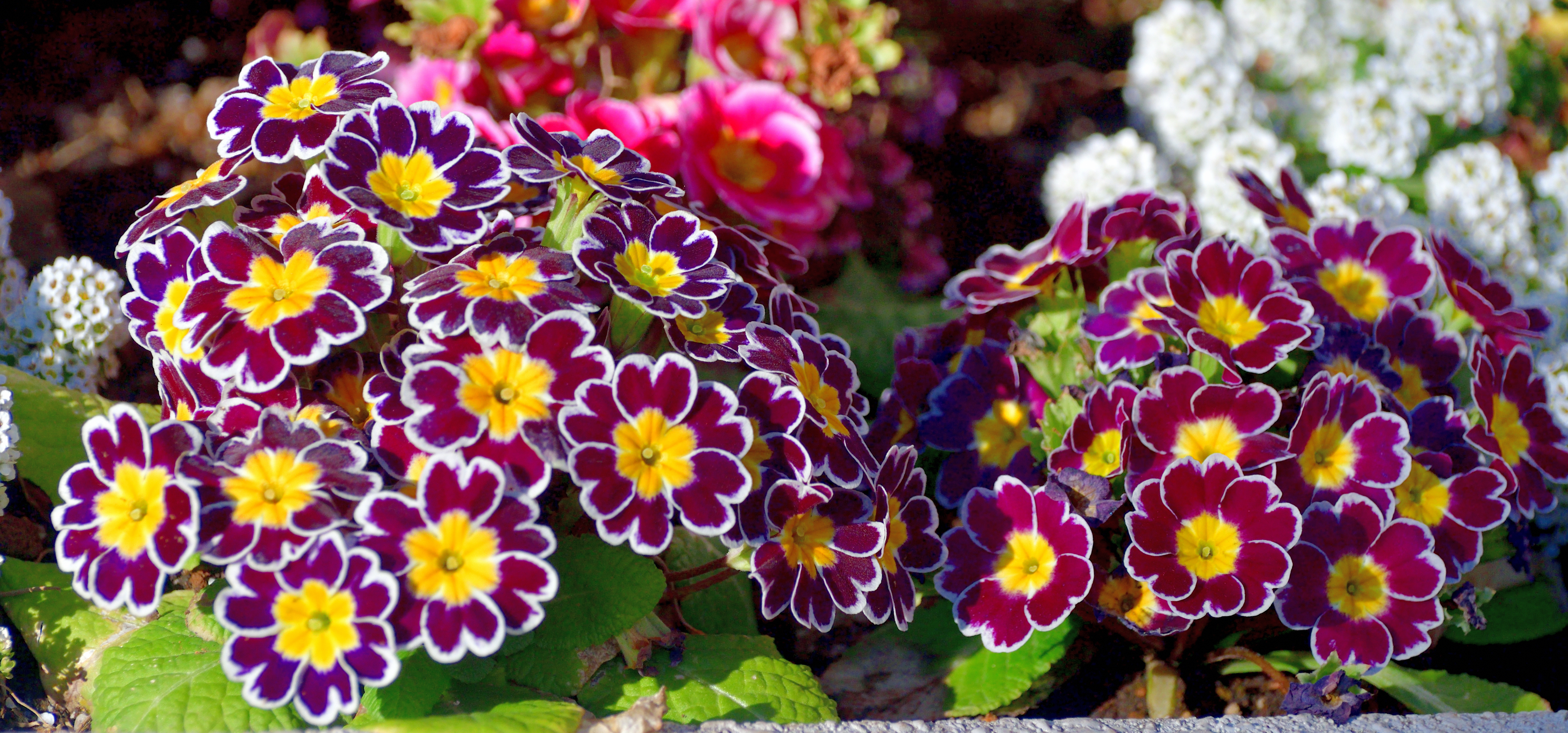
One of the dream color combinations for winter window box ideas is pretty flowers and berries in deep reds and dusky pinks mixed with evergreen interest. Some plants combine all three in one, such as Japanese skimmia. This winter interest foliage plant has shapely evergreen leaves, dense clusters of white or pink flowers in spring, and colorful berries (as long as you plant a female and male variety together). This means they are a great all-rounder for winter window box ideas.
Another good choice for tucking into window boxes, especially if they're going to be positioned in a shady or semi-shady spot, is primula (also known as polyanthus). These vigorous little plants will add scent and color to lift cooler days, producing plenty of flowers and neat rosettes of foliage.
This bloom will certainly bring your winter container ideas to life. Primulas come in a range of colors and varieties. Best of all, they start flowering in cold weather and have a long season.
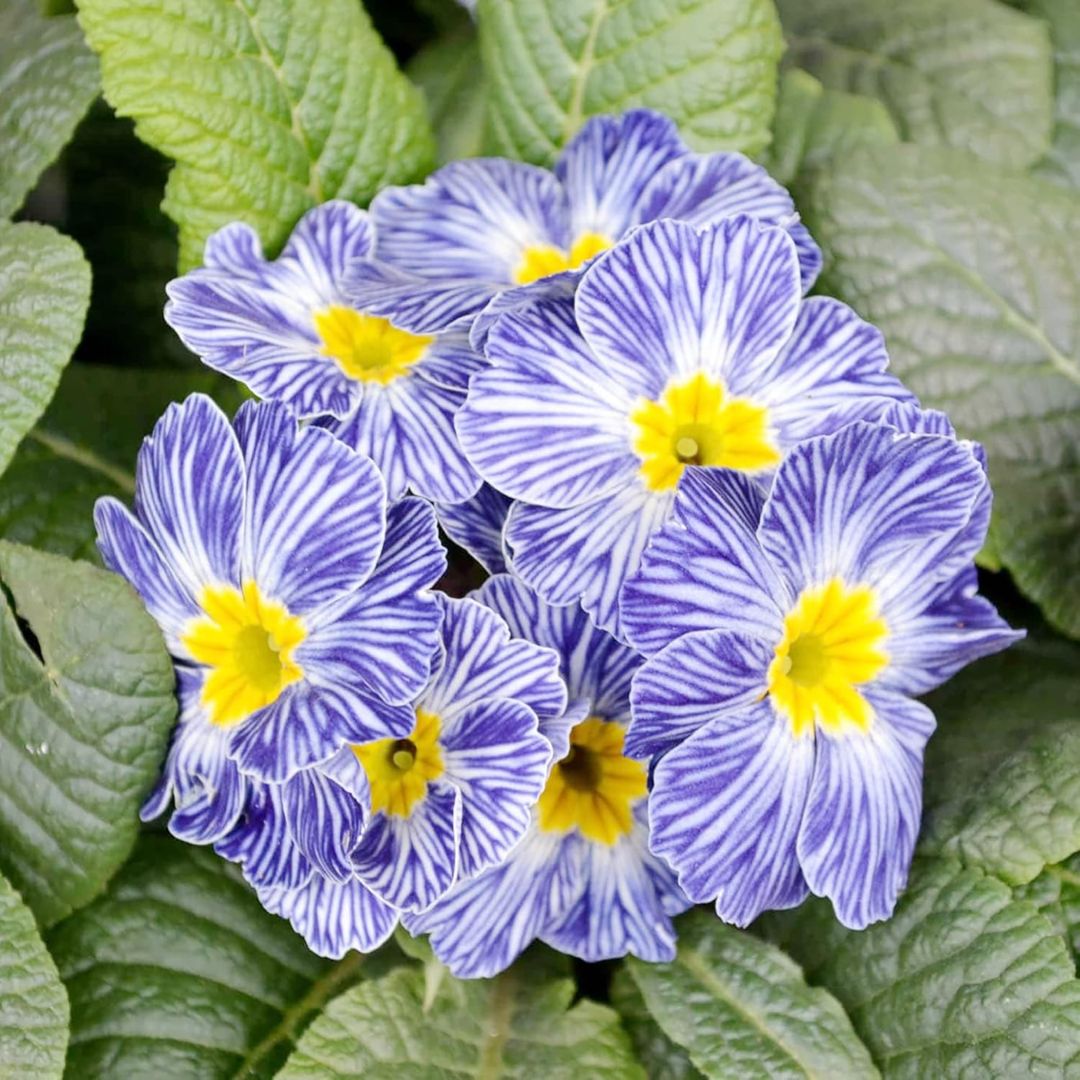
Price: $11.99
This colorful bloom loves partial shade and can be grown in moderately fertile, well-drained soil.
4. Introduce little elements of surprise to your design
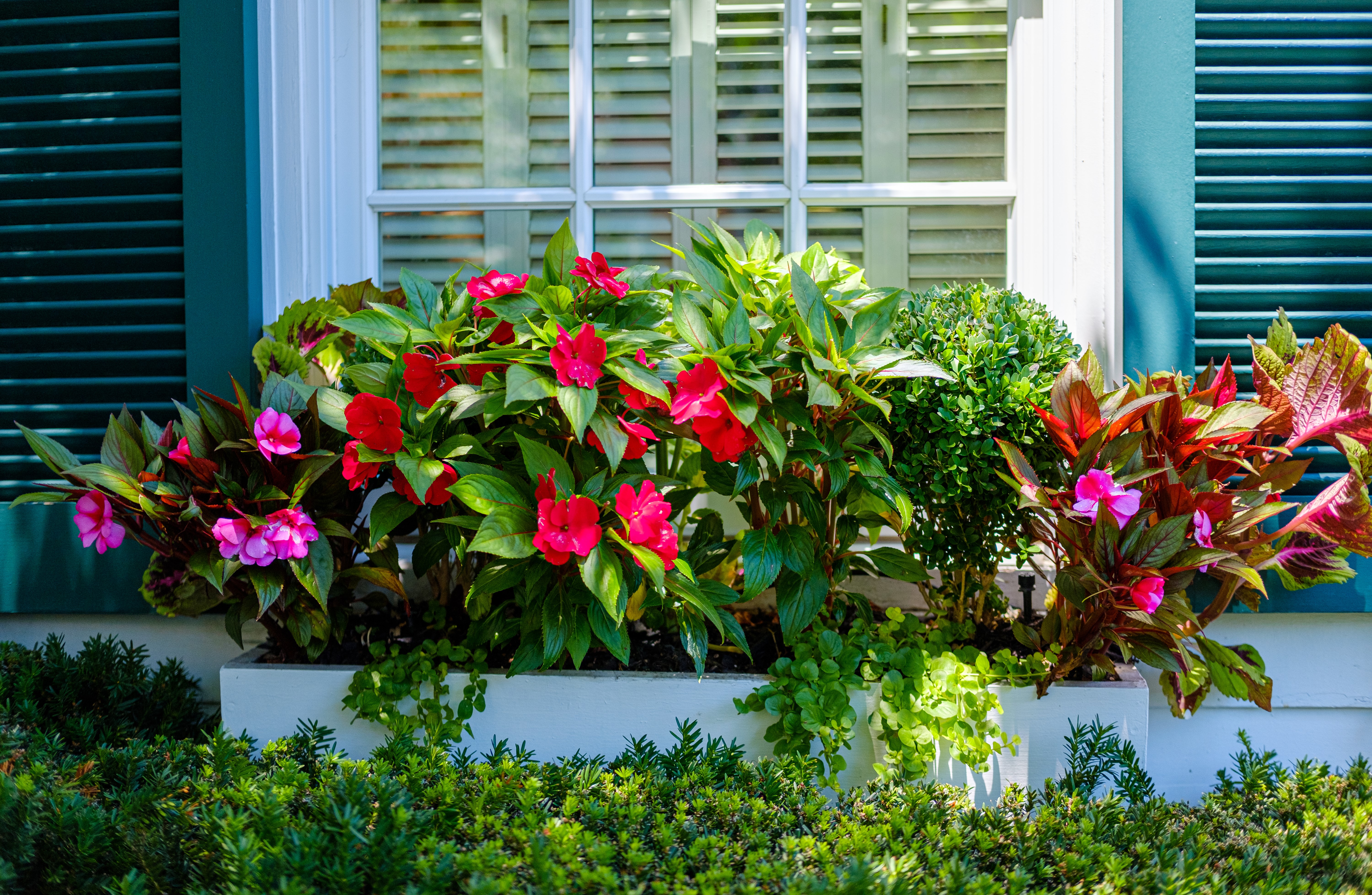
Consider adding some unique touches to customize your winter window box ideas. The dainty soft, and furry silver catkins of pussy willow stem are one of the first signs of spring and look particularly fine as part of a winter planting design.
Small and compact varieties of pussy willow can be started off in a large container or window box and then transferred to the garden once they outgrow the space. There is also a beautiful dwarf weeping variety called Kilmarnock willow that makes a very ornamental addition to window boxes, where it will cascade prettily over the sides.
When arranging winter bouquets, add some foraged twiggy stems as an afterthought for an existing design. Winter window boxes look all the better with adding some evergreen boughs such as arborvitae, colored dogwood stems trimmed into bunches, or sculptural twigs to add height and definition.
5. Use symmetry to create an eye-catching display
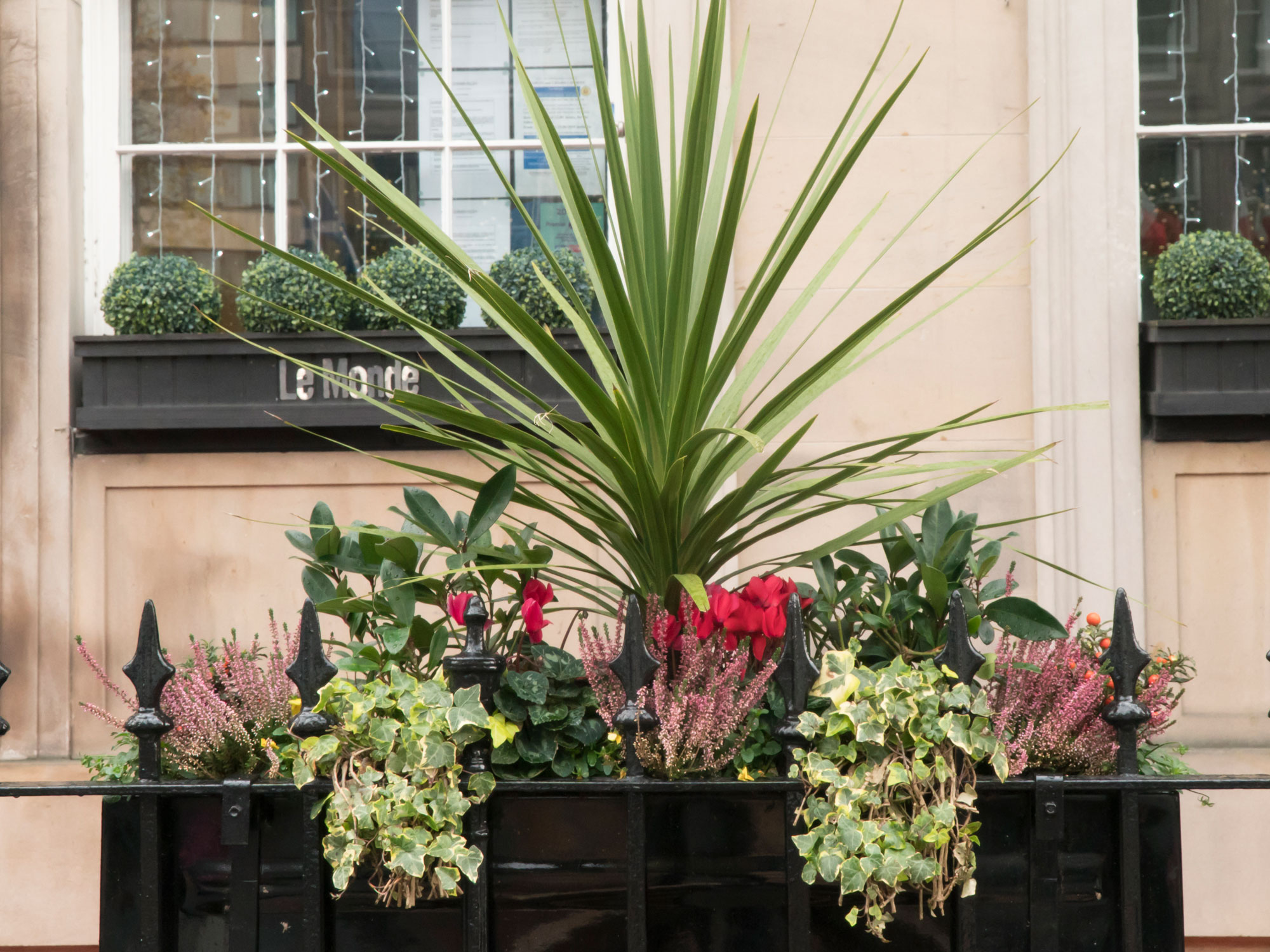
Choose an easy, symmetrical design for a professional-looking finish. Think about plant heights carefully, choosing one slightly taller plant as your focal point to create visual interest. Always check the ultimate height of your plant, as you don't want it to obscure the window.
Used as a centerpiece, a shapely phormium will add architectural definition and a sense of drama to winter window boxes. Once positioned, simply fan out the rest of your plants in the window box on either side symmetrically. Combine with ivy to soften the look — a hero plant in the winter garden that can be used as a 'spiller' in window boxes.
You can also opt to add cyclamen— a classic winter window box plant, known to be one of the best bulbs for a shady backyard. "At the beginning of the winter season, choose ivy-leaved Cyclamen hederifolium for your window box," suggests landscape designer Amber Hine. "It has dainty nodding flowers in a range of colors from white to deep pink, plus beautiful marbled foliage. These are such fabulous garden plants. Bringing them up to eye level in a window box display is such a seasonal treat, just when everything else seems to be slowing down."
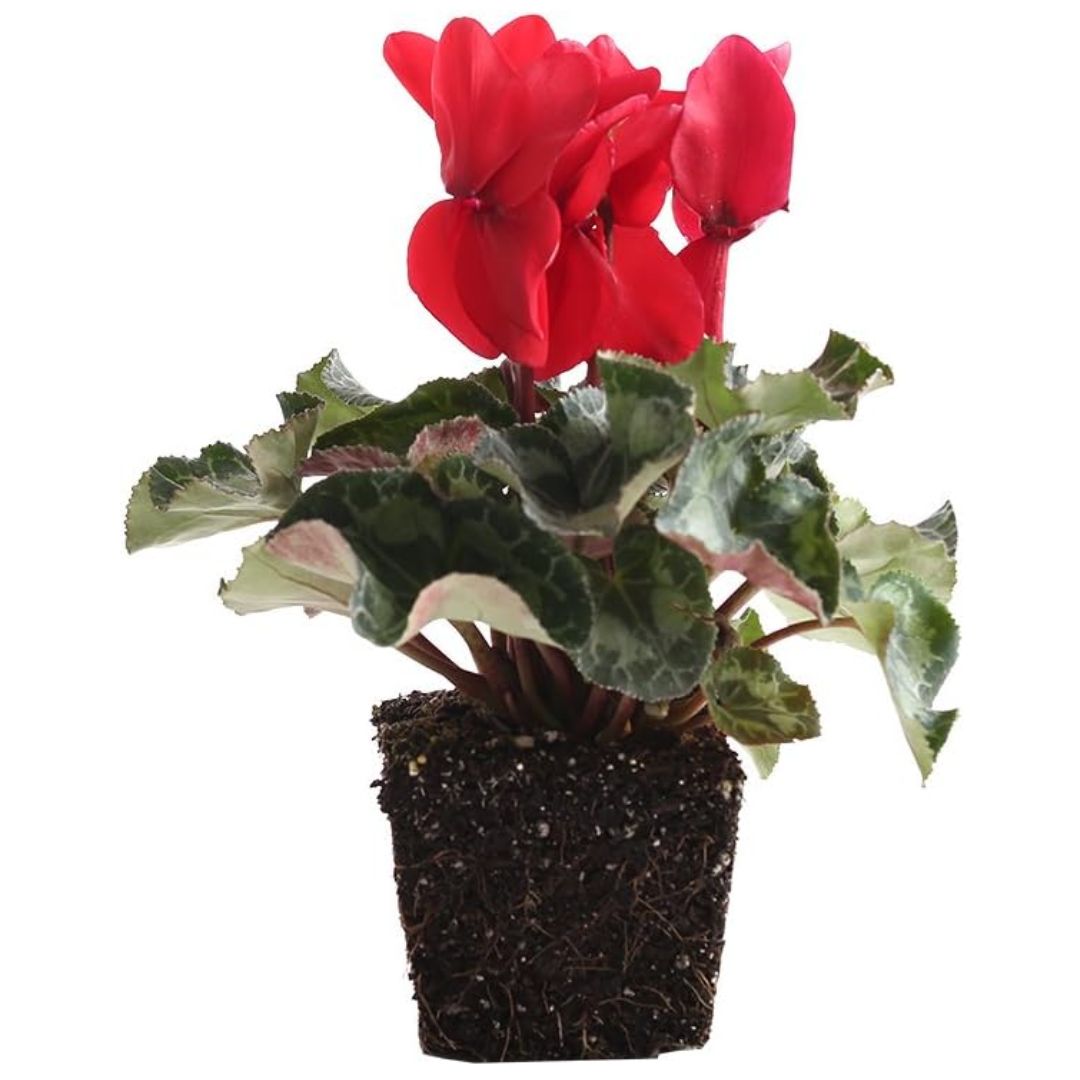
Price: $13.12
Want to bring the outdoors in? This red Cyclamen Latinia from Amazon is ideal for indoor use and is expected to bloom throughout the winter.
6. Choose a leafy design that celebrates foliage
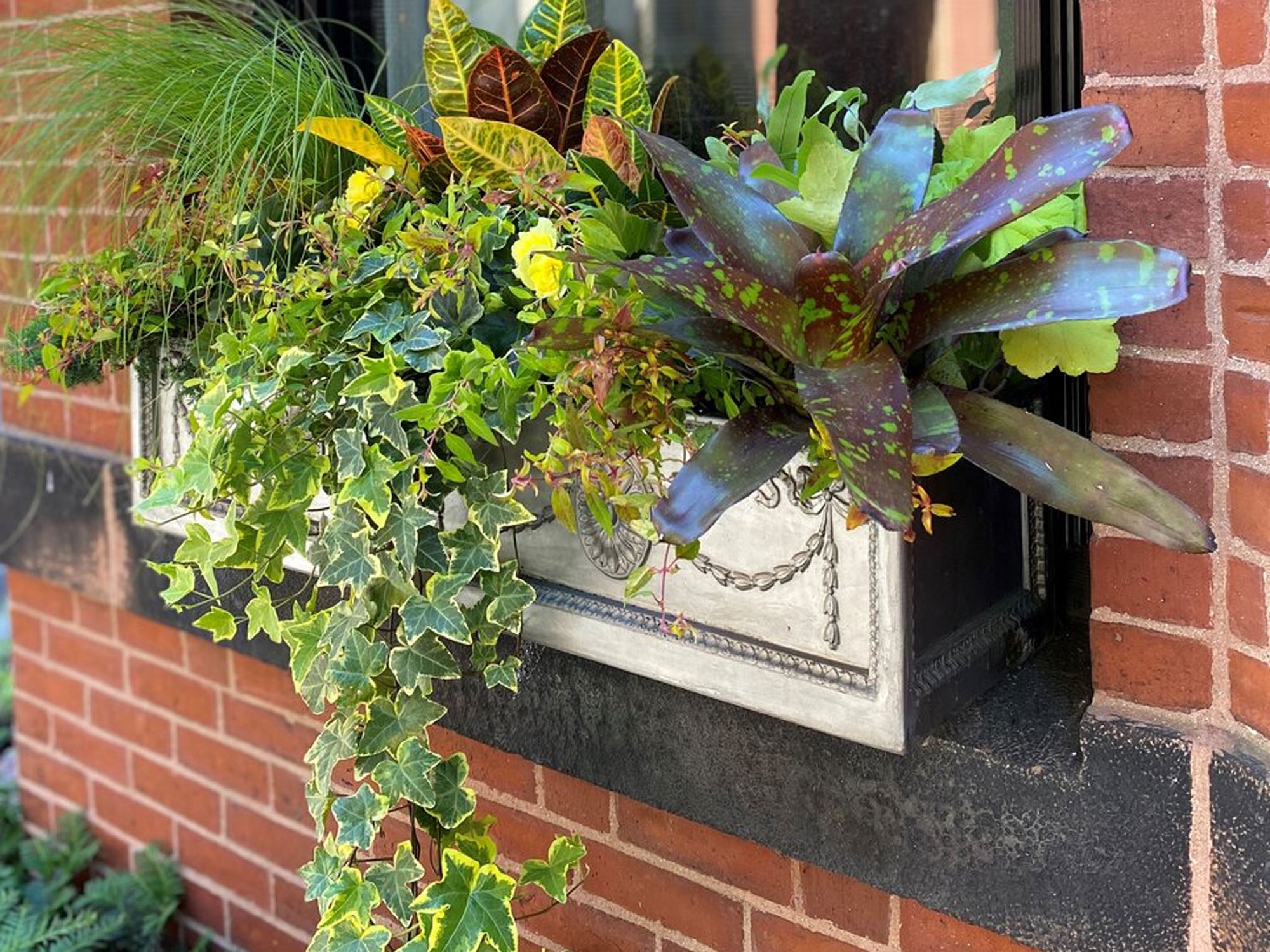
Beacon Hill, Boston based florists Rouvalis Flowers suggest selecting a winter window box design that matches the style of your house
A mix of ornamental grasses for privacy, trailing ivy, and foliage with dramatic splashy markings becomes so much more than a support act when used in your winter window boxes. A design like this doesn't need any flowers or berries as it becomes the actual planting story.
The speckled strappy leaves of the bromeliad Neoregelia Farinosa make a stunning focal point in a leafy window box like the design seen here. It's more cold-hardy than many tropical plants and safe to grow outside in USDA plant hardiness zones 9 and 10, but it must be kept indoors as a houseplant during the cooler months in the rest of the US.
Another great choice if you live in a mild climate is Brunnera (like this Premier Plant Solutions Siberian Bugloss from Amazon), with its large, heart-shaped leaves featuring dappled silvery variegation. Meanwhile the exquisitely marked leaves of heuchera come in plenty of vibrant green shades as well as dark plummy colors that bring foliage-filled window boxes to life.
Plant any of these leafy foliage plants against a backdrop of evergreen ornamental grasses such as Carex to give height and contrasting texture, with trailing ivy cascading over the edges.
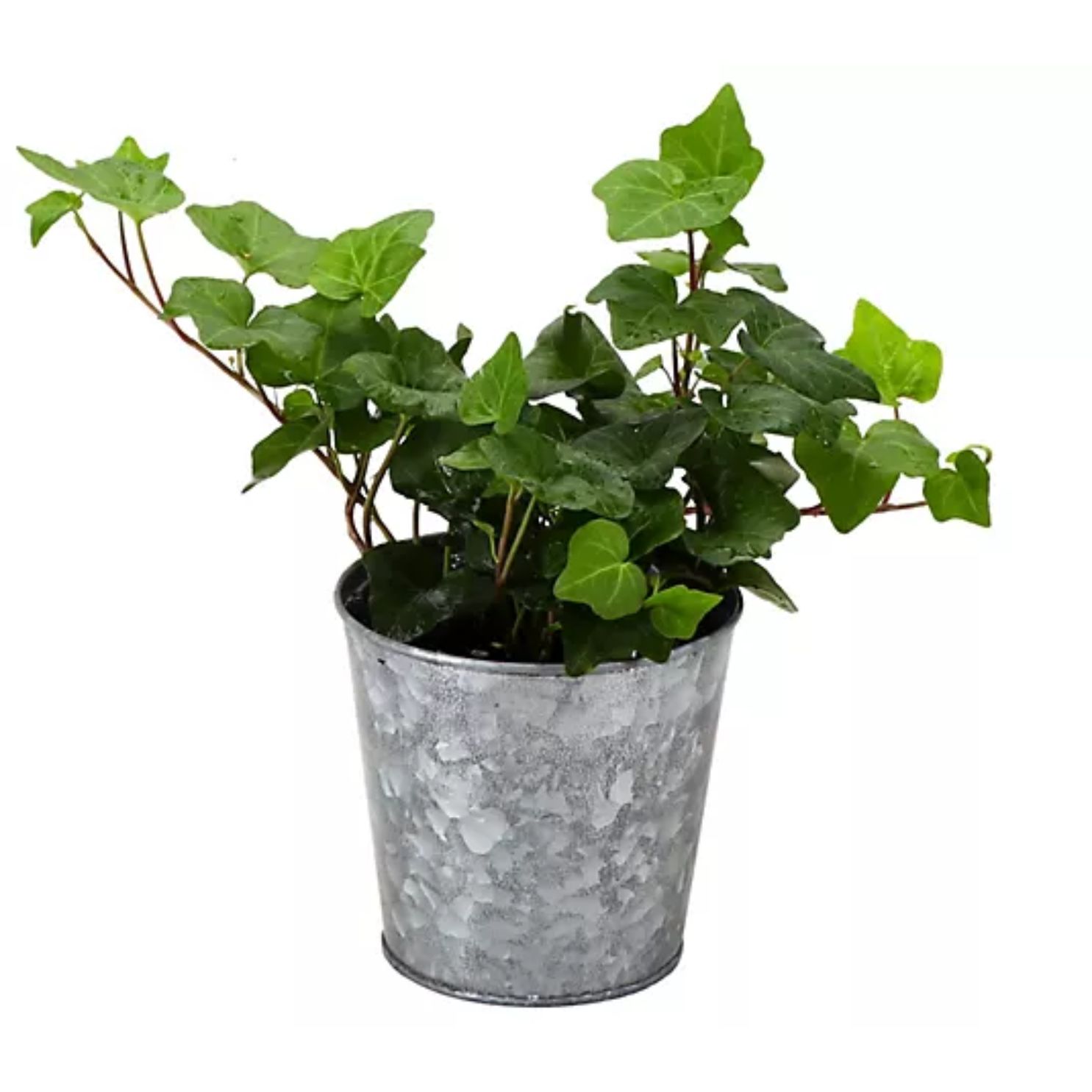
Price: $31.48
This Thorsen's Greenhouse Live 4" Green Ivy Plant in Metal Pot from QVC is perfect as a lush houseplant that will bring a sense of the outdoors in. With its bright leaves and long growth, this lush, green ivy makes for a charming trailing plant.
7. Bring delicate flowers up to eye-level
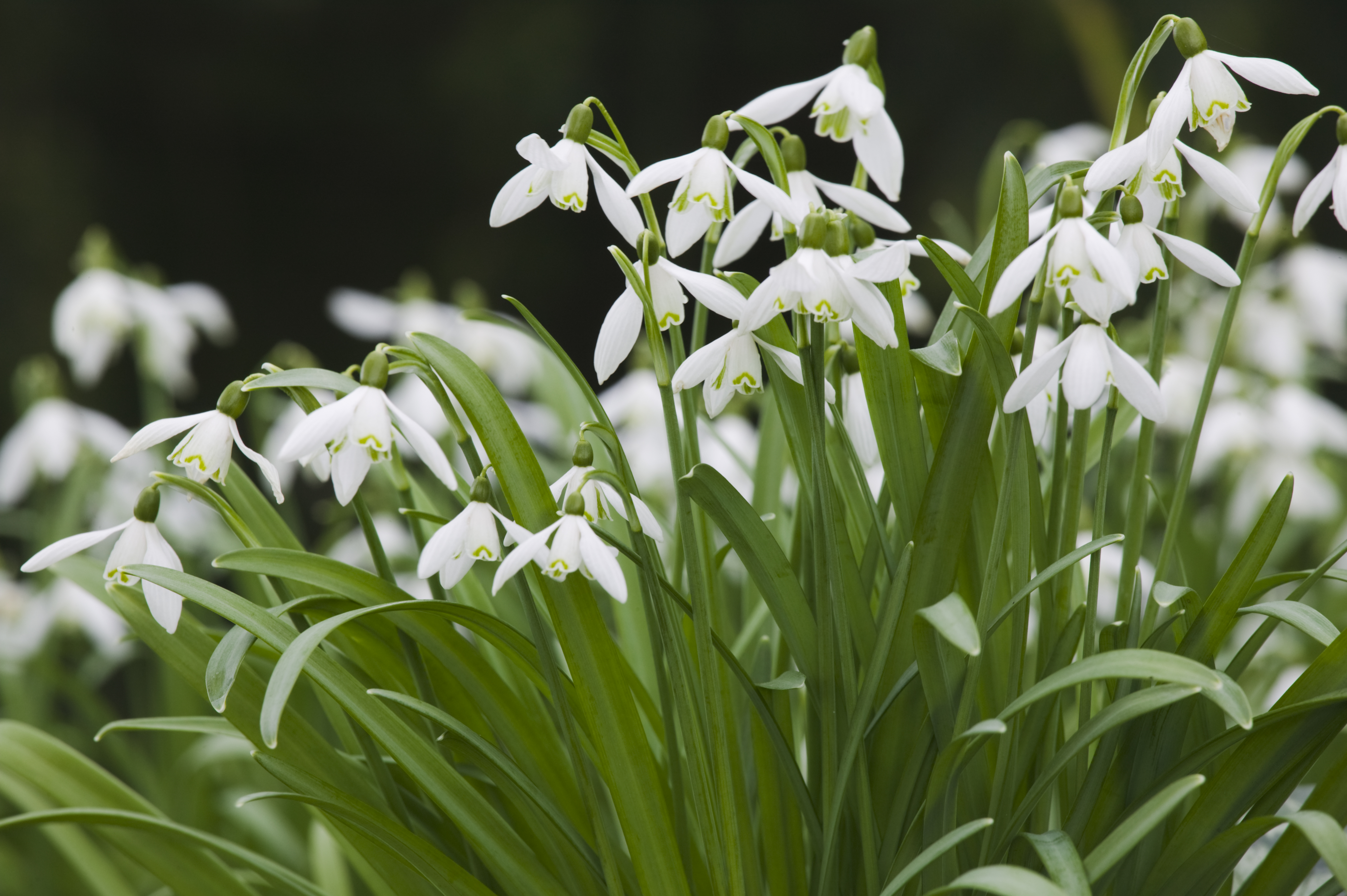
"As window boxes are at eye-level height this opens up the opportunity for some of the more delicate flowers to be enjoyed," says Amber Hine. "They also make the most of tight garden spaces where you may not have much more than a windowsill, so enjoy it and take advantage of the eye-level display with a seasonal window box."
Delicate and beautiful Van Zyverden Galanthus Snowdrops from QVC and other late-winter/early-spring bulbs could also be considered for a window box in a shaded location. "The fresh white blooms of snowdrops can be enjoyed in winter window boxes as the new year begins," says Amber Hine. They look fabulous planted en masse as the stars of the show.
If you love the look of luminous white flowers in your winter landscape, try adding white hellebore to your winter window box as an alternative to snowdrops.
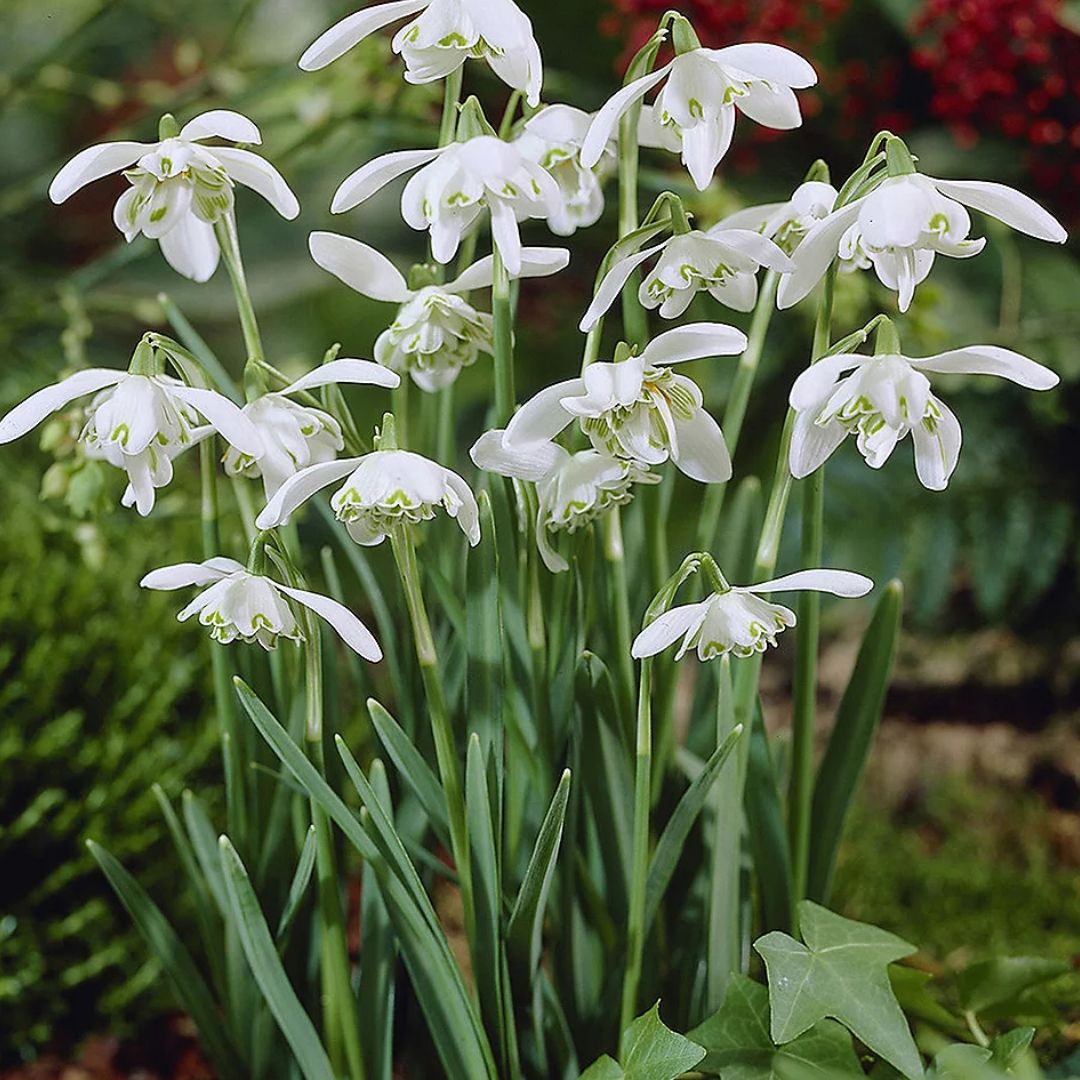
Price: $34
Quantity: 12 Bulbs
The perfect fit for those winter window box ideas, these blooms will add a touch of spring color to your home. This bloom loves partial sun exposure and is known to be pest-resistant.
8. Put the spotlight on evergreen ferns
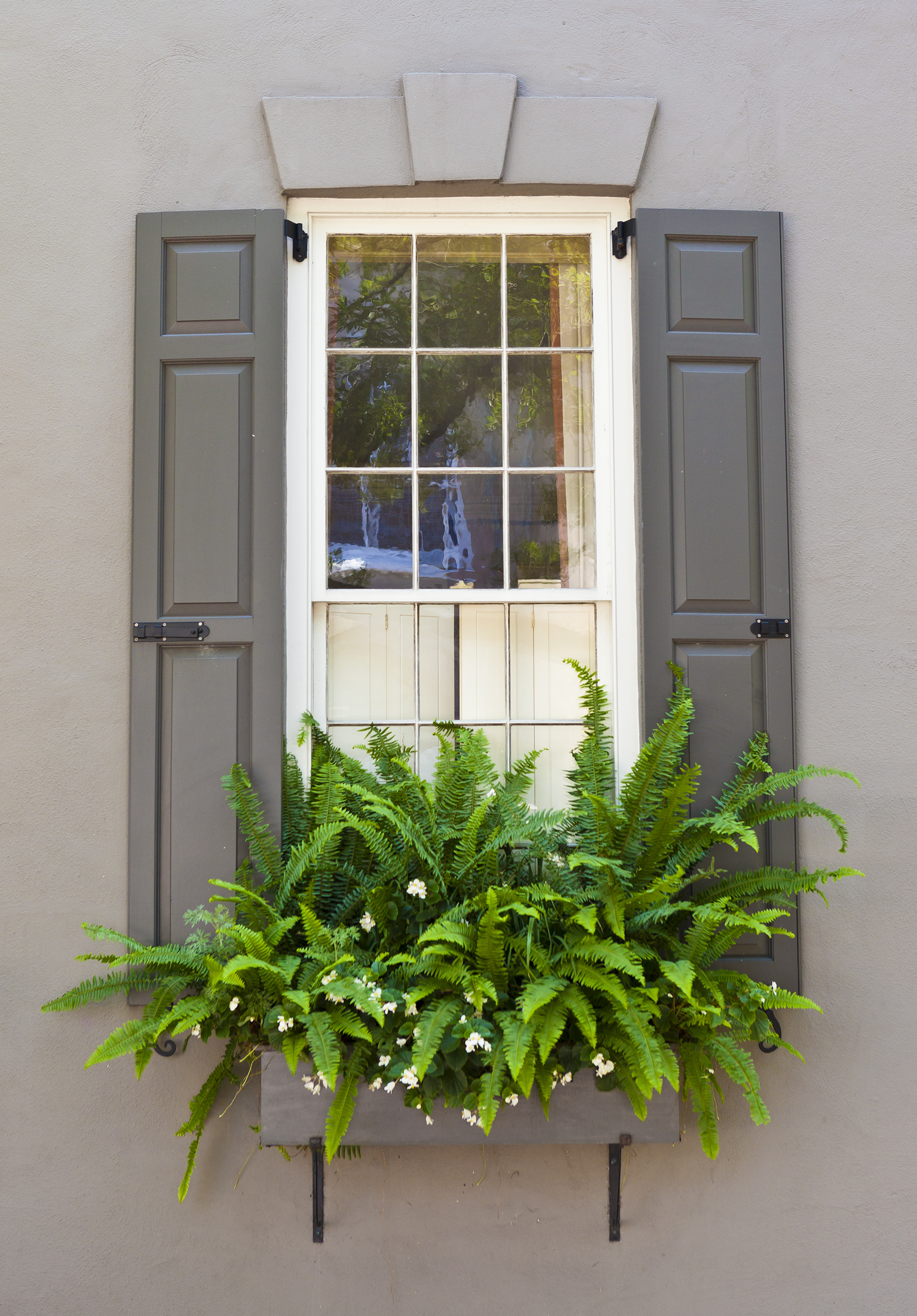
Consider adding interesting evergreen ferns to your winter window box to introduce a shapely architectural detail. The vibrant bright green fronds will add a lush textural look too. Before you add this beauty to your window box, it's important to learn about how to care for ferns in winter.
Ferns can be woven into other window box plants to create an exquisite effect. They come in a wide range of foliage types, forms, and shades, so there is something to suit every space. The main consideration is to choose winter-hardy evergreen varieties such as the tassel fern.
"Looking both ornate and primordial, the modest tassel fern is a phenomenal backdrop for shade perennials," according to the experts at Nature Hills Plant Nursery. "It's wonderfully sized for use in shaded window boxes and containers as a filler, backdrop and spiller."
Evergreen ferns are a particularly good choice for window boxes in shade gardens, introducing light and lacy patterns amongst darker green plants. It's attention to detail like this that will give your winter window boxes a real standout.
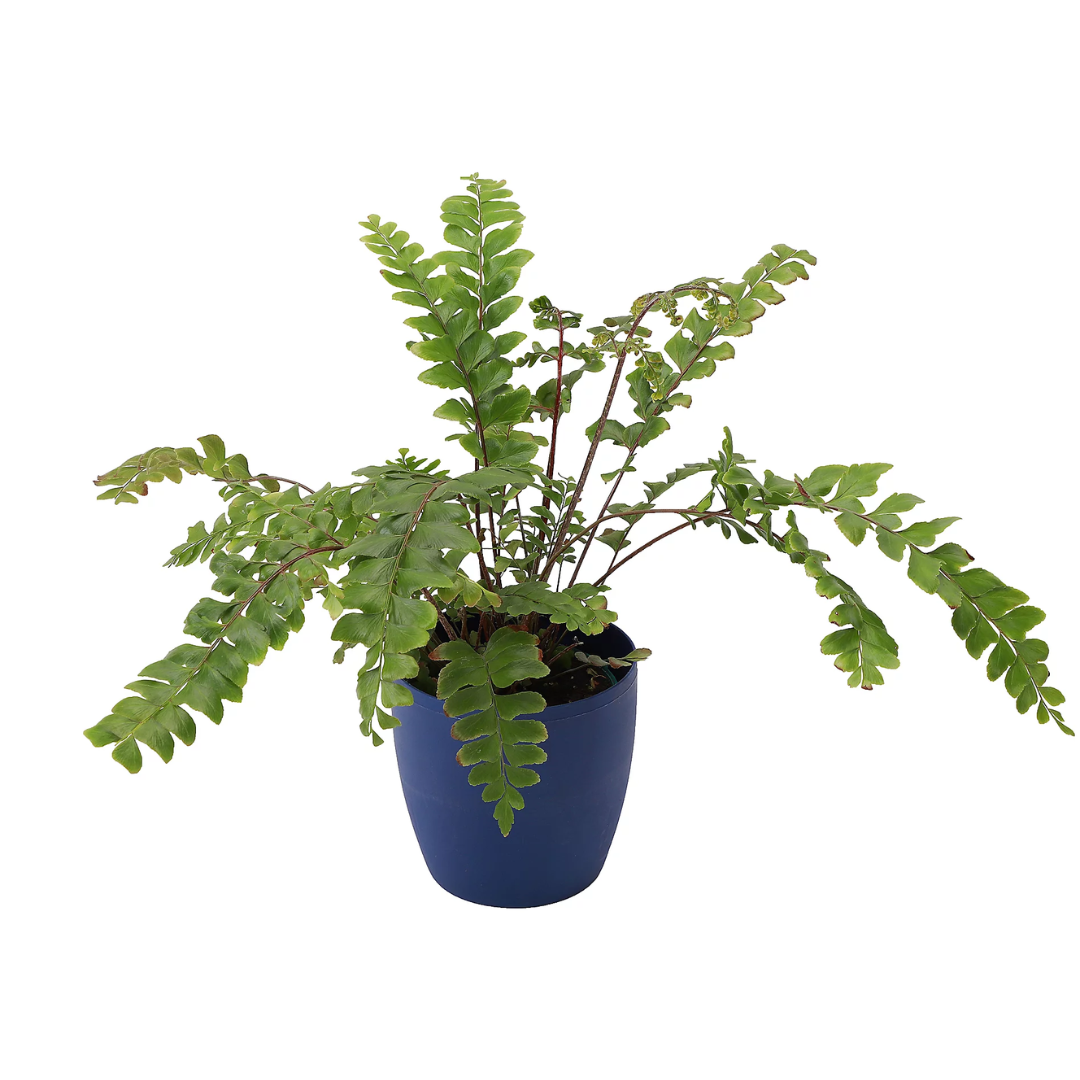
Price: $26.23
Bring a pop of color to your windowsill with this beautiful green fern. It comes in 4 different container colors and will certainly bring some curb appeal.
FAQs
What to do with planter boxes in winter?
If you want to store your planters away during the winter, there are a few things you need to do to store them away correctly. First, remove any dead flowers and any remaining dirt from your planter.
You should then move your pots to a dry place, possibly the garage or garden storage shed. Once you've placed them in your chosen location, turn them upside down and cover them with a plastic tarp. This will prevent moisture from getting into your planters.
Be The First To Know
The Livingetc newsletters are your inside source for what’s shaping interiors now - and what’s next. Discover trend forecasts, smart style ideas, and curated shopping inspiration that brings design to life. Subscribe today and stay ahead of the curve.
Lifestyle journalist Sarah Wilson writes about flowers, plants, garden design and trends. She has studied introductory garden and landscape design and floristry, and also has an RHS Level 2 qualification in the Principles of Plant Growth and Development. In addition to homesandgardens.com and livingetc.com she's written for gardeningetc.com, Real Homes, Modern Gardens and Country Homes & Interiors magazines. Her first job was at Elle magazine, during which time a trip to the beautiful La Colombe d'Or in St-Paul-de-Vence led to an interest in writing about all things botanical. Later as lifestyle editor at Country Homes & Interiors magazine the real pull was the run of captivating country gardens that were featured.
- Faiza SaqibRenovation Editor
-
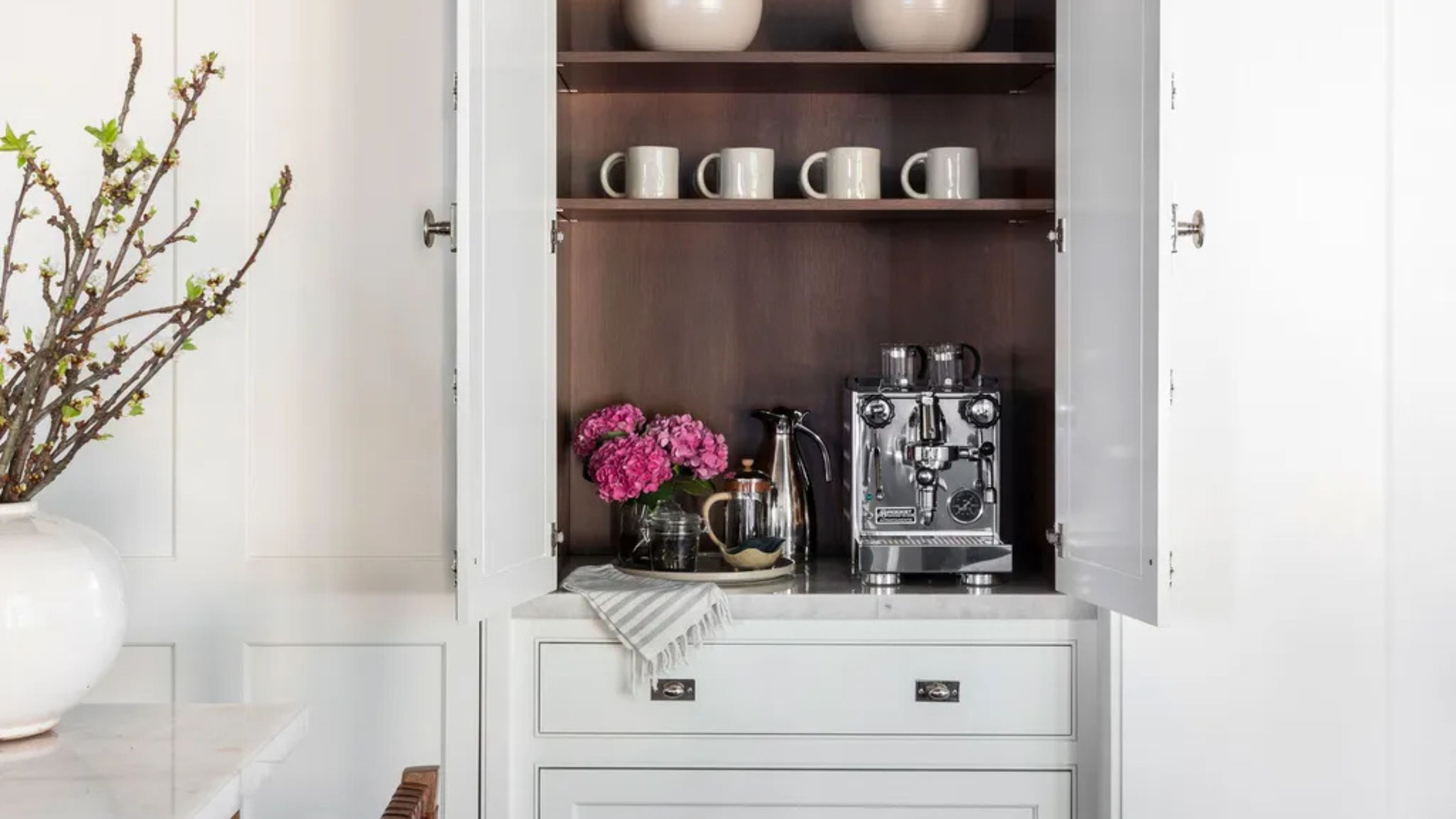 Turns Out the Coolest New Café is Actually In Your Kitchen — Here's How to Steal the Style of TikTok's Latest Trend
Turns Out the Coolest New Café is Actually In Your Kitchen — Here's How to Steal the Style of TikTok's Latest TrendGoodbye, over-priced lattes. Hello, home-brewed coffee with friends. TikTok's 'Home Cafe' trend brings stylish cafe culture into the comfort of your own home
By Devin Toolen Published
-
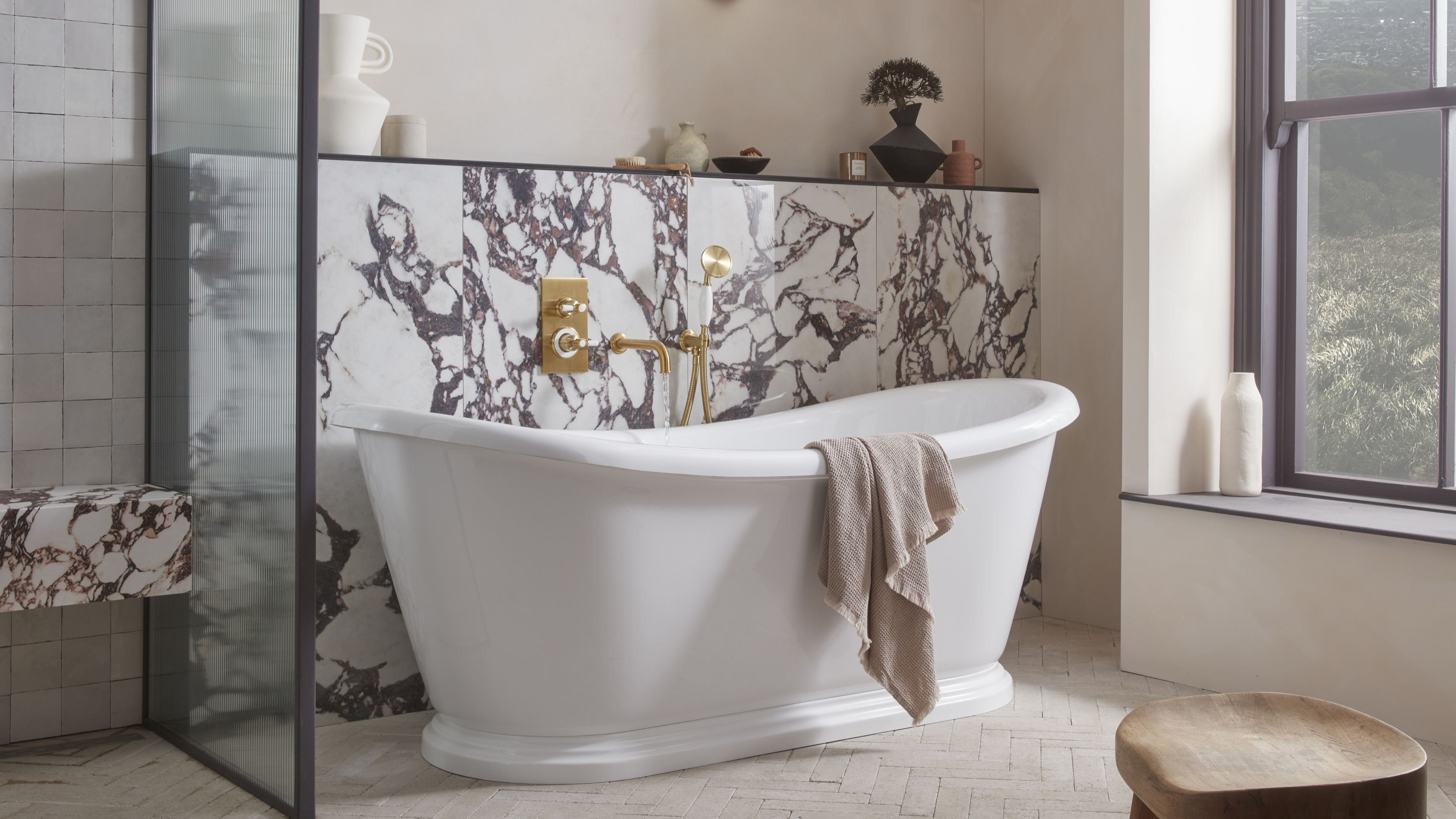 5 Bathroom Layouts That Look Dated in 2025 — Plus the Alternatives Designers Use Instead for a More Contemporary Space
5 Bathroom Layouts That Look Dated in 2025 — Plus the Alternatives Designers Use Instead for a More Contemporary SpaceFor a bathroom that feels in line with the times, avoid these layouts and be more intentional with the placement and positioning of your features and fixtures
By Lilith Hudson Published